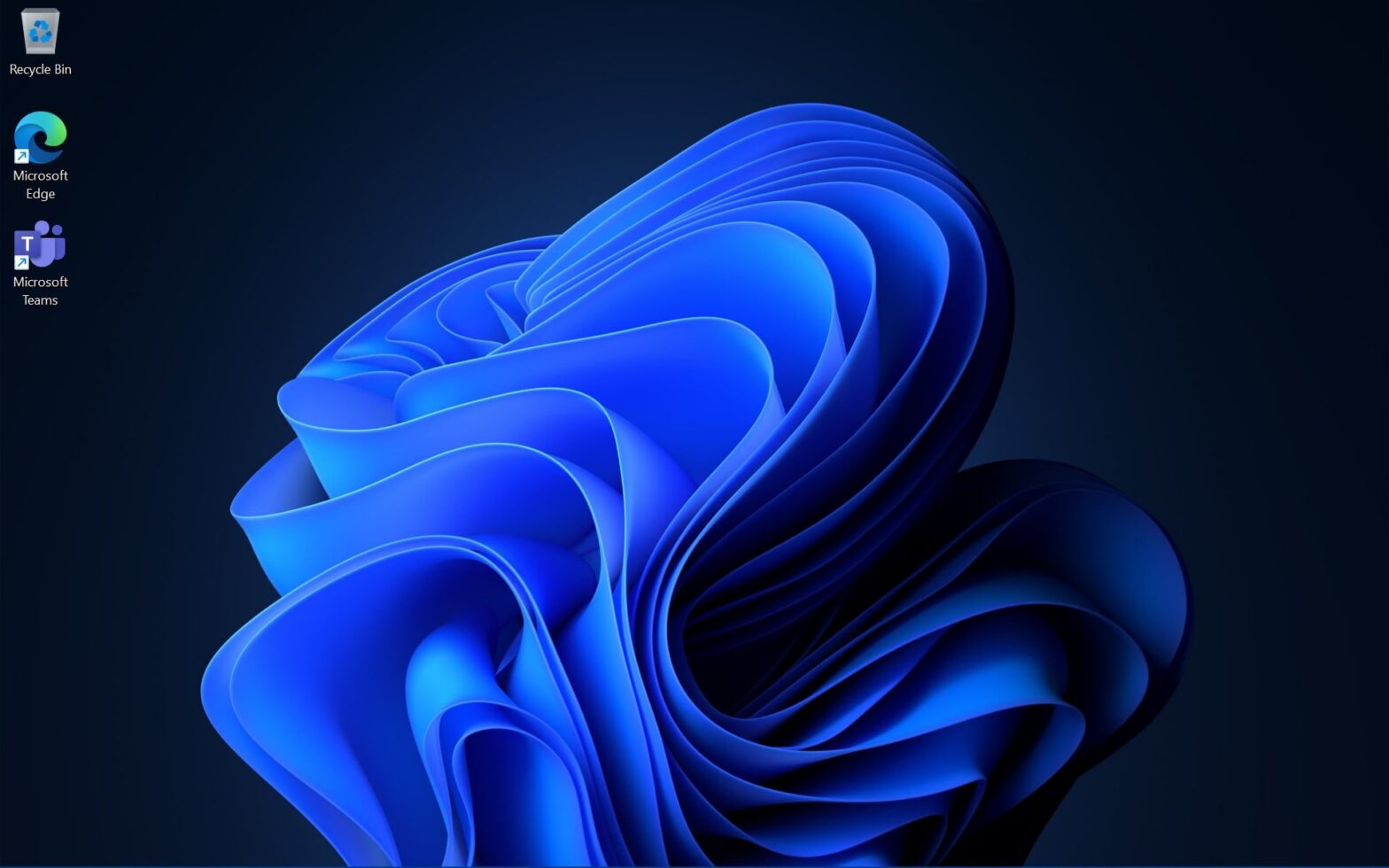Happy Doctor’s Day!
Background
Last week, Microsoft showcased their latest Operating System (OS), The Windows 11. This is the new OS that will upgrade the Windows 10 that runs billions of computers globally. While talking to the analysts, Satya Nadela, the CEO and Chairman of Microsoft envisioned Windows 11 to be the ‘center’ of all the operating ecosystems. I downloaded the developers version on one of my tablet, Lenovo’s Yogabook, to test out the initial impressions of the new Windows 11 and does it meet the vision of Microsoft’s CEO and Chairman
Teething issues with the update to Windows 11
Microsoft has certain minimum hardware and security requirements which prevent existing systems to upgrade to Windows 11. Security enhancements in the new OS, requires TPM 2.0 (Trusted Platform Module) as well as Secure Boot, both security technologies, to run perfectly. This is why Microsoft has not listed Windows 11 support for a huge list of processors that do not come with these technologies. After many workarounds and system checks, I was able to get the Window 11 developer’s version update. This whole exercise took away over 11 hours of time from start to finish! Microsoft views to this is that its part of making more secure as a platform. However, unlike earlier upgrades to Windows 10, where many users complained that their files were deleted, this was not the case this time round.
Windows 11 minimum system requirements
| Processor: | 1 gigahertz (GHz) or faster with 2 or more cores on a compatible 64-bit processor or System on a Chip (SoC) |
|---|---|
| RAM: | 4 gigabyte (GB) |
| Storage: | 64 GB or larger storage device |
| System firmware: | UEFI, Secure Boot capable |
| TPM: | Trusted Platform Module (TPM) version 2.0 |
| Graphics card: | Compatible with DirectX 12 or later with WDDM 2.0 driver |
| Display: | High definition (720p) display that is greater than 9” diagonally, 8 bits per color channel |
| Internet connection and Microsoft accounts: | Windows 11 Home edition requires internet connectivity and a Microsoft account to complete device setup on first use. |
Cosmetic Surgery in the Windows 11 Operating System
There are a few positives in the first look at Windows 11 OS, the user interface is much cleaner, intuitive and clears all the patchwork of interfaces from earlier Windows OS in Windows 10. There is a feeling of an immersive experience. When I attached my system to external high-end curved monitor, the experience was very fabulous. For the doctors who want to view the radiological images, this would be a plus.

Chronic Aliments Still Persists
Moving on to congratulating Microsoft on their efforts, let me critique Microsoft on the issues that still persist from the previous OS that it need to really work and iron out for the new OS to be a real clinical workplace productivity enhancer. Some of these options are very easy for Microsoft to incorporate with its final release of Windows 11 to the world at large. Here are some of my views, I will add more as I do use the new OS in the next few weeks to come.
Windows Dictation and Read Aloud Tools
I have been using Windows dictation tool to get many of my documents typed out. However when I say certain medical terms under ICD 10 or names of molecules or medications, there is a typo returned in the typed output. I have seen a demo of Microsoft Azure tools for healthcare that are available to enterprise cloud and app developers of Microsoft, why should it be so difficult to roll this out for students, medical workers on their retail license of Windows 11? After setting the regional setting to India, Indian accents and Hinglish is still not available. Microsoft keyboard on my android phone has been trained for the last 2 years, Windows 11 can take the same from the information stored on their Keyboard App on Android and use those to train the dictation tool. Read Aloud Tool still has a Caucasian woman and cannot Hinglish words well or recognize them.
IoT Device Integration
There are several devices that the doctor can control right from his desktop in his clinic without having to get up and switch or off during diagnosis. Amazon and Google has been working perfectly with on IoT devices through Alexa and Google Assistant. Cortana is still lagging on the same functionality and experience. Unless the Microsoft CEO and Chairman in his statement on being in the center meant that we may have to use the Windows 11 desktop and get over to Google Assistant (on the Android App or browser) or Alexa to command the IoT devices connected to the network.
Pen Writing and Annotation
There are enhancements in the pen settings. However the current handwriting recognition is same as the Windows 10. Fast scribbles of the prescription still show as typos. The auto completion of medical terms still give garbles. The pen annotation of radiological reports still need to give micro-level pinpointing at 10x zoom. Still the same experience continues from Windows 10.
Microsoft Teams Integration
Microsoft Teams which was more for enterprise customer as a video conferencing and virtual collaboration app is now fully integrated into Windows 11. This means the doctors and their patients can freely teleconsult through their desktops
Multiple Desktops
This was a feature in the MacOS for years is now introduced in Windows 11. Doctors can now have multiple desktops for their outpatients, inpatients, personal and other work and personal workplace segregation.
Android Apps in App Store
This is just a feature in the App store. We still have to see the power of running these app on the Windows OS run systems. One of the main reasons for updating the developer version was to check the apps compatibility on Windows 11 desktop.
The Rhythm of Blues
As the Windows 11 is a developer version of the OS. Please be prepared for the system to crash and show you blue screen a few times in a day.
Not Everyones OS for Healthcare in India
Microsoft has bumped up the minimum requirements for upgrading to Windows 11. As per Microsoft their justification is 3-fold
- Security: Windows 11 requires hardware that can enable protections like Windows Hello, Device Encryption, virtualization-based security (VBS), hypervisor-protected code integrity (HVCI) and Secure Boot. The combination of these features has been shown to reduce malware by 60% on tested devices. To meet the principle, all Windows 11 supported CPUs have an embedded TPM, support secure boot, and support VBS and specific VBS capabilities.
- Reliability: Windows 11 will now be in a supported and reliable state. By choosing CPUs that have adopted the new Windows Driver model and are supported by our OEM and silicon partners who are achieving a 99.8% crash free experience.
- Compatibility: Windows 11 is compatible with the apps you use. It has the fundamentals of >1GHz, 2-core processors, 4GB memory, and 64GB of storage, aligning with our minimum system requirements for Office and Microsoft Teams.
IT hardware asset refresh cycles in India are not driven by change of operating systems requirements. As many of the old desktops and laptops will not be meeting the minimum criteria laid out by Microsoft, many of the older systems will be running on Windows 10 till they are refreshed in healthcare and their consumers. Let’s understand, Indians don’t buy new phones or desktops and laptops every year because there is a new model (as Apple assumes it to be).
I will continue to add over here as I come across the good, the bad, the ugly about Windows 11 as I test the OS futher.
Statutory Disclaimer: folks wishing to download it can do so from the Microsoft Insider website. However, people other than developers are highly recommended not to download the build as of now. This is because such early beta testing versions are full of bugs that are only ironed out as and when beta testers report them to Microsoft.

